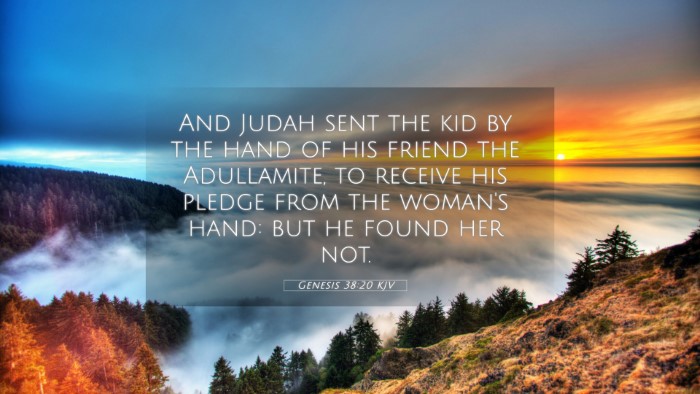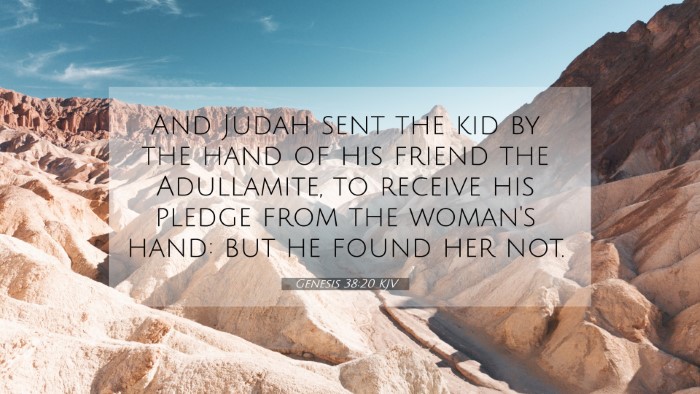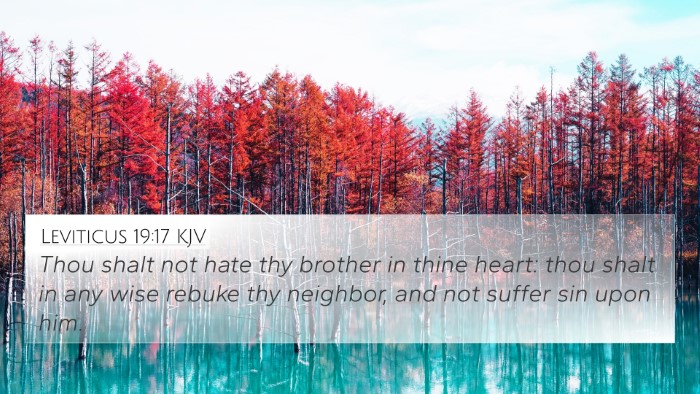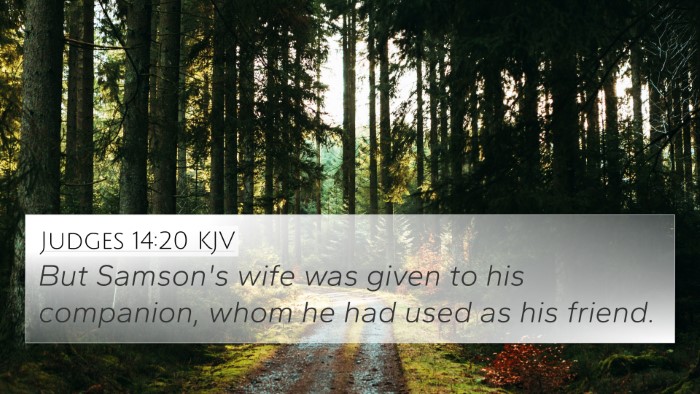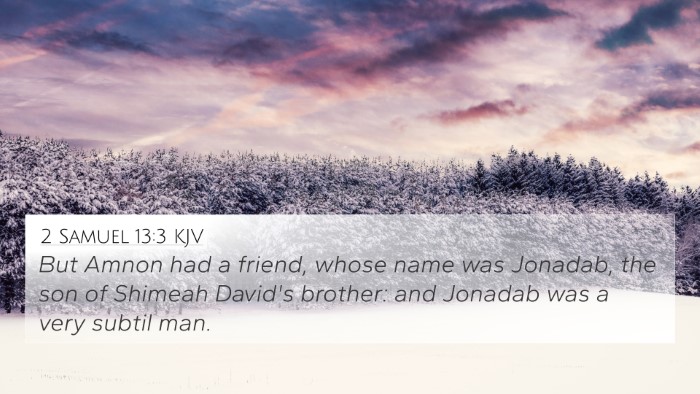Understanding Genesis 38:20
Genesis 38:20 states: "And Judah sent the kid of the goats by the hand of his friend the Adullamite, to receive his pledge from the woman’s hand: but he found her not." This verse reflects a critical moment in the narrative involving Judah and Tamar. The interpretation of this verse can be enriched by exploring insights from various public domain commentaries such as those by Matthew Henry, Albert Barnes, and Adam Clarke.
Contextual Background
This verse is situated in the larger story of Judah and Tamar, which illustrates themes of justice, deceit, and ultimately redemption. Judah, after the loss of his wife, interacts with Tamar, who disguises herself to secure her rights after being wronged. The complexities of their relationship and the cultural norms of the time are crucial in understanding the actions depicted in this verse.
Commentary Insights
Matthew Henry's Commentary
Matthew Henry emphasizes the moral implications of the passage, discussing Judah’s actions as reflective of human frailty and the entanglement of personal desires with societal obligations. He notes that Judah's intention to fulfill his promise to Tamar represents a pivotal moment of responsibility, although his attempts are thwarted as he cannot find her.
Albert Barnes' Commentary
Albert Barnes provides a more detailed exploration of the socio-legal context surrounding the events. He highlights that sending a kid (goat) was customary in trying to redeem a pledge. The failure to find Tamar underlines the transient nature of human pursuits and the inevitability of unforeseen circumstances. Barnes points out that this incident serves as a precursor to the upcoming revelation of Tamar's true identity and her importance in the lineage of Judah.
Adam Clarke's Commentary
Adam Clarke expands on the significance of the 'kid of the goats,' connecting it to the traditional practices of sacrifice and redemption in ancient Israel. He also remarks on the friendship of the Adullamite, revealing the interpersonal dynamics that influence Judah’s actions. Clarke suggests a deeper theological insight into the future implications of these events for the lineage of David and ultimately Jesus Christ.
Bible Cross-References
Genesis 38:20 connects to several other scriptures, providing a broader understanding of its significance:
- Tamar's story: Genesis 38:6-11
- Judah's promises: Genesis 38:8-9
- Deception and uncovered truth: Genesis 38:24-26
- The concept of redemption: Leviticus 25:25
- Judah’s lineage: Matthew 1:3-6
- Promises and fulfillment: Hebrews 6:13-15
- Social justice in Israel: Deuteronomy 25:5-10
- God's providence in unexpected places: Romans 8:28
- The importance of familial duty: Ruth 4:1-10
- Judah's transformation: Genesis 44:16-34
Thematic Connections
The themes presented in Genesis 38:20 resonate throughout scripture, illustrating a profound tapestry of human experience and divine involvement. In addition to familial relationships and redemption, this passage invites readers to explore:
- Human frailty: Illustrated by Judah's hesitation and the risks of his decisions.
- Divine providence: The eventual outcome of Tamar's actions leads to a significant lineage.
- Justice and morality: Examined through the lens of cultural customs and personal responsibility.
Conclusion
Genesis 38:20 serves as an essential point of reflection for understanding the complexities of human interactions and divine purpose. By engaging in comparative Biblical verse analysis, one can uncover the rich inter-Biblical dialogue that this verse prompts. Tools for Bible cross-referencing can deepen your study, allowing for a comprehensive exploration of Biblical themes and highlighted connections.

